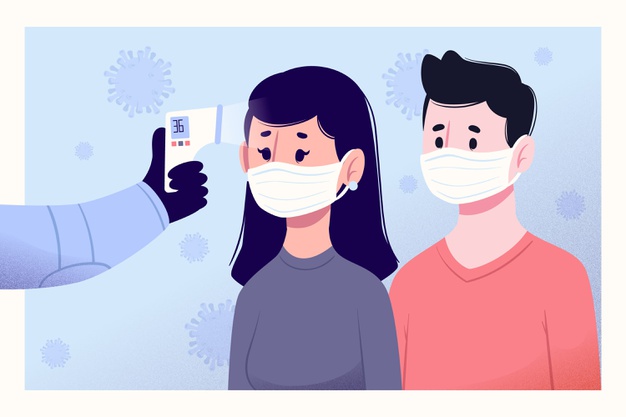COVID-19 Pandemic has not only taken a toll on the lives of people, but it has also manifested itself adversely into our mental space. It has become difficult for people to cope up with the perpetual news cycle of losses, tragedy, and trauma. ‘Pandemic Fatigue’ refers to the feeling of demotivation and exhaustion that people are experiencing in their daily lives. It is due to intermittent stay-at-home orders, uncertainty, fear of job losses, and falling incomes. One of the detrimental consequences is a decline in people following appropriate behavior and measures to mitigate the spread of the COVID-19 virus. Prolonged hardships and sudden disruptions in social engagements have caused a rising number of people to experience this silent agony.
According to an online survey conducted under the aegis of the Indian Psychiatry Society, two-fifths of the respondents were suffering from mental distress like anxiety or depression. WHO has pointed out that Pandemic Fatigue is “natural and expected reaction to sustained and unresolved adversity in people’s lives”
Pandemic Fatigue
COVID-19 has posed an unprecedented challenge to humanity. Pandemic Fatigue is a natural reaction to it. Hence. If you are also facing similar mental strain and difficulty coping, you are not alone.
What are the symptoms?
- A feeling of fear, anger, irritability, and frustration
- Changes in appetite
- Reduced interest and motivation
- Difficulty to sleep
- Drowsiness and lethargy
Measures to manage Pandemic Fatigue
Psychologists have suggested a few measures to manage the stress of ‘Pandemic Fatigue’:
-
Reflect and Accept
It is important to acknowledge that a COVID-19 Pandemic is an unparalleled event in the history of mankind. The helplessness that you might be feeling is natural. Take time and try to care of your mental well-being. Awareness of the problem is a fundamental keystone of the mental health toolkit. “We can’t change what we’re not aware of. It all starts here”, says Dr. Ross, a Psychologist.
-
Filter your News Feed
It is critical to stay updated with current happenings, especially during the times of the COVID-19 Pandemic. But this might drive up your stress levels and negative emotions. Anxiety may build up from constant social media scrolling and “information overload”. Experts have suggested limiting the screen time and relying only on authenticated news. You may consider staying off social media or scheduling limited time for it until you feel better.
-
Take up new Hobbies
Monotonous routines and the inability to meet family or friends might drain your mental energy and cause loneliness. Lockdowns have pushed people inside their homes with only a few options to replenish their energy. Cultivating a new hobby like cooking, gardening, or learning a new musical instrument can help in managing stress. It will keep you engaged and motivated to learn. You can look for more hobbies or habits that can help you relax your nerves and have some mental peace during these times.
-
Keep a Journal
Writing down your feelings can be an effective way to release and express. It will help you analyze a situation and your response to it better. Dr. Radhika Bapat, a clinical psychotherapist has suggested making two columns and writing down things that you can control and things that are not under your control separately. Under your control, things include masking, self-care, getting enough sleep, and taking precautions to avoid contracting COVID-19 infection. What you can’t control is the future so try to worry less and focus on what you can do in the present, she says.
-
Develop a consistent routine.
You need to deliberately craft a consistent routine and stick to it to relax the mind. Pandemic Fatigue has negatively impacted the sleep cycle of most people. Adequate and timely sleep is crucial for your mental health well-being. Developing a consistent routine and remaining active will keep you busy and motivated. Taking a long walk or a run in the morning can also help clear up your mind.
Please contact a Psychologist or call the government helpline numbers, if your symptoms don’t improve and reach out for help.
